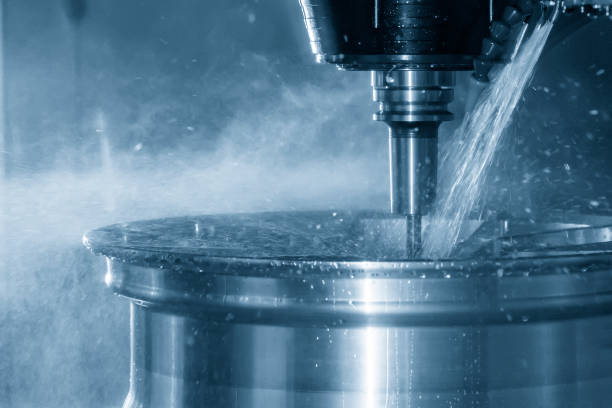Introduction
Aluminum casting molds play a crucial role in the manufacturing industry, particularly in producing complex and intricate components. The quality of these molds greatly affects the overall efficiency and precision of the casting process. This article will explore the key factors involved in creating high-quality aluminum casting molds and how they can enhance the performance of the manufacturing process.
1. Design Considerations
The first step in creating a high-quality aluminum casting mold is to consider the design aspects. A well-designed mold ensures that the final product meets the desired specifications and minimizes the need for post-casting modifications. The design should include proper gating and runner systems to facilitate the smooth flow of molten aluminum into the mold cavity. Additionally, the mold should incorporate features such as cooling channels to control the solidification rate and prevent defects like porosity.
2. Material Selection
Choosing the right material for the mold is crucial in ensuring its durability and longevity. Aluminum casting molds are commonly made from various materials like steel, iron, or even aluminum alloys. Each material has its advantages and limitations, depending on the specific requirements of the casting process. Steel molds are known for their high strength and resistance to wear, making them suitable for high-volume production. On the other hand, aluminum molds offer faster heat transfer and are more cost-effective for low-volume production.
3. Surface Finish
The surface finish of the aluminum casting mold greatly influences the quality of the final product. A smooth and polished mold surface helps to minimize surface defects and improve the overall appearance of the cast component. Achieving the desired surface finish requires proper mold preparation techniques, such as polishing, abrasive blasting, or electroplating. Additionally, applying a release agent or coating to the mold surface can prevent the adhesion of molten aluminum, improving the mold\’s lifespan.
4. Precision Machining
Precision machining is a critical step in creating high-quality aluminum casting molds. CNC (Computer Numerical Control) machining ensures accurate dimensions and complex geometries, enhancing the mold\’s capability to produce intricate castings. The use of advanced machining techniques, such as high-speed milling or wire EDM (Electrical Discharge Machining), allows for precise cavity and core creation. Moreover, maintaining tight tolerances during machining ensures the consistent production of quality components.

5. Mold Maintenance
Proper mold maintenance is essential to prolong the lifespan of the aluminum casting mold and maintain its performance. Regular cleaning and inspection help identify and address any potential issues, such as wear or damage. Additionally, applying protective coatings or treatments can enhance the mold\’s resistance to corrosion and wear, further extending its lifespan. Adequate storage and handling practices are also crucial to prevent accidental damage.
6. Advanced Technologies
In recent years, advancements in technology have revolutionized the aluminum casting mold manufacturing process. Computer-Aided Design (CAD) software allows for precise mold design and simulation, reducing the need for costly and time-consuming trial-and-error methods. Additive manufacturing, commonly known as 3D printing, enables the production of intricate mold components with complex geometries. These advanced technologies enhance the efficiency and accuracy of mold production, leading to high-quality castings.
Abschluss
Creating high-quality aluminum casting molds is essential for achieving precision and efficiency in the manufacturing process. Proper design considerations, material selection, surface finish, precision machining, mold maintenance, and the integration of advanced technologies are key factors that contribute to the overall quality of the mold. By focusing on these aspects, manufacturers can ensure the production of high-quality cast components while optimizing the manufacturing process.
-

- Hochpräzise Magnesium-Thixomolding-Komponenten Laptop-Gehäusedeckel A
-

- Kundenspezifische Gießereiprodukte hochpräzise Druckgussteile für integrierte E-Bike-Rahmen
-

- Magnesium-Gießereiteile Lenksäule
-

- Magnesiumlegierung Druckguss Autoteile Scheinwerferrahmen
-

- Druckguss aus Magnesiumlegierung Autoteile Frontstoßstange Antikollisionsstrahl
-

- Fahrräder für Kinder Kinderfahrräder für 3-16 Jahre altes Kind / OEM-Baby-Kinderfahrrad Kinder-Mountainbikes 2022

 0086-750-5616188
0086-750-5616188 +86 13392089688
+86 13392089688 sales@zhongmei-tech.com
sales@zhongmei-tech.com







